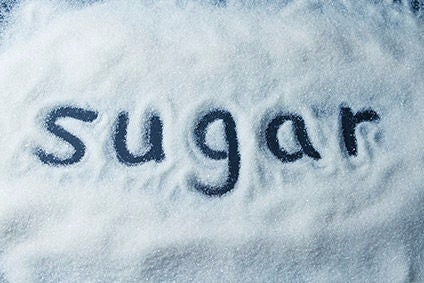
Public Health England (PHE) today (30 March) set out guidelines for food manufacturers operating in the country to reduce sugar by 20% in the top nine categories of products providing sugar to children’s diets by 2020.
The report follows last year’s launch by the UK government of an action plan to tackle childhood obesity in England.

Discover B2B Marketing That Performs
Combine business intelligence and editorial excellence to reach engaged professionals across 36 leading media platforms.
The guidelines challenge the industry to voluntarily cut overall sugar content in biscuits, breakfast cereals, cakes and pastries, chocolate, confectionery, ice cream, puddings, sweet spreads and yogurts from “baseline” levels in 2015 levels. As a start, PHE said the Government is looking for a 5% reduction by August this year.
However, anti-obesity campaigners say the report fails to say how targets will be enforced.
PHE said while the guidelines focus on foods consumed by children up to the age of 18, “the reality is that families eat the same foods”… so the programme will “help all family members to reduce their sugar consumption, thereby reducing the risk of weight gain and the consequences of this to their health”.
However, PHE stressed “sugar reduction should be achieved without increasing the level of saturated fat within a product and, where possible, be accompanied by calorie reduction”.

US Tariffs are shifting - will you react or anticipate?
Don’t let policy changes catch you off guard. Stay proactive with real-time data and expert analysis.
By GlobalData“Industry is encouraged to focus its reformulation efforts on its biggest selling products above the sales weighted average sugar level and calorie or portion size guidelines as these make the biggest contribution to the average amount of sugar sold and therefore consumed,” PHE said.
Today’s report sets out guidelines for average sugar levels in products sold – weighted by volume of sales and for the amount of calories or size of portion for products “likely to be consumed by an individual at one time”.
Under the guidelines, for example, total sugar in breakfast cereals should be reduced from a 2015 baseline sales weighted average per 100g of 15.3g to 12.3g total sugar/100g by 2020. Yogurts, including sweetened dairy yogurt, fromage frais products and their non-dairy alternatives – but excluding natural yogurt and unsweetened yogurt and fromage frais – should be reduced from a baseline 12.8g to 11g in 2020. Total sugar content in puddings, including canned, chilled and frozen puddings, should be reduced from a baseline 18.8g to 15.1g in 2020.
“This is the first time that such an extensive, structured programme for sugar reduction has been set out in the UK and possibly worldwide,” PHE said.
UK industry body the Food and Drink Federation said last week it would “not be technically possible or acceptable to consumers” to meet the 20% cut.
Speaking today, Ian Wright, the FDF’s director-general, said: “The guidelines are very stretching but manufacturers, for our part, are willing to take on the challenge.”
Wright said: “Companies are working hard to overcome technical challenges and make gradual tweaks to favourite foods that regular customers can accept. They are also developing new low sugar alternatives. In some foods, portion size reductions will be necessary.”
Graham MacGregor, Professor of Cardiovascular Medicine at Queen Mary University of London and chairman of campaign group Action on Sugar. said: “The missing factor in this report is how these targets will be enforced.” But he praised PHE’s “tremendous achievement setting coherent and achievable sugar reduction targets in such a short space of time”.
British Dietetic Association deputy CEO Sue Kellie called for further restrictions on the advertising of foods high in fat, sugar and salt before the UK’s 9pm TV watershed and a ban on promotions on the products to back up the targets.





